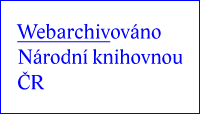Editorial 2022/2
Dear friends, The winter issue of the Library: a library review is here to offer a wide range of topics. The section with reviewed papers is quite extensive this time. Helena Kučerová, in her study Document Theory and Communication Models, analyses three important reference conceptual models of social communication - the Shannon-Weaver model of the general communication system, Jakobson's model of linguistic communication and the IFLA LRM conceptual model of bibliographic information; based on the analysis of these models, she then proposes her own working model of the document and, within its framework, a solution to the relationship of the concept of document to the related concepts of information, information resource and medium. With this paper, the author continues her exploration of document theory, this time applying the method of conceptual analysis of communication models and conceptual modeling. In her contribution the Collection of Music Books of the Church of St. John the Baptist in Teplice, Ludmila Mikulášová introduces Teplice, not only a renowned spa, but also a town with a rich musical history, and specifically focuses on a remarkable collection of more than 1500 items of church music, mostly manuscript, from the 18th to the 20th century. The author is engaged in music historical research of the collection and in its processing for the RISM international database of musical sources. Thanks to this historical research, it has been possible to identify the names and research the fate of the Teplice choir directors and organists, which has helped to chronologically unravel the various layers of manuscripts in the collection and to determine the approximate time of creation for many of them, to trace the origin of several documents and to contribute to the appreciation of the cultural and historical significance of the entire collection of these surviving musical sources. The case study by Prof. Dušan Katuščák, entitled Artificial inteligence helps to make available written heritage, is from the field of digital humanities. It presents the Slovak research project with the acronym SKRIPTOR (planned for 2020-2024), which focuses on the field of optical recognition of the historical printed script - Fraktur and is part of the European basic research project READ. It describes the state of research in the field, the existing transcription tools and especially the experiment aimed at transcription of Slovak and Czech texts printed in the Fraktur, and the creation of an efficient model of automatic transcription of historical texts using artificial intelligence. The protection of library collections, specifically the safety of non-invasive research using radiation of a specific wavelength, is a subject treated by a team of authors who follow up on previous work describing the use of imaging methods for the study of hidden information in books (this was a project of the NAKI programme aimed at studying the possibilities of displaying hidden information in books using multispectral analysis and radiography, specifically radiography). Now the authors concentrate on measuring the safety of non-invasive surveys using specific wavelength radiation and present the results of this research. In the section Libraries and information at home and abroad Vladana Pillerová summarises results of the project "Joint action of social partners to address key issues in the sectors" - one of the sectors covered by the multi-year project was culture, and specifically libraries. The objectives of the project were: to identify problem areas in the sectors concerned, to formulate actionable recommendations to address the problems in selected jobs in order to reduce the physical and psychological burden on employees, to unify views on selected problem areas, to eliminate barriers to social dialogue and collective bargaining and to further the work of bipartite platforms. In order to achieve these objectives, several surveys have been carried out (the results of which are described in the article), debates, seminars and conferences have been organised with good response. On the sub-topic of the threat of burnout of library staff in the work process, which has so far been very little discussed and written about in the library community, we have already contributed a paper in a previous issue of Library Plus. For the review section, we have selected the title Covid reading: what the pandemic has done to our readership by Hana Friedlanderová, Vít Richter and Jiří Trávníček. The present issue of the "Library Review" includes the traditional sections: several recommendations from the acquisitions of the Library of Library Literature of the National Library of the Czech Republic and an annotated selection of articles from the wide world of the New Library Science Publications from Abroad. We wish you a successful completion of 2022 and good health and strength for the new year. Continue to be supportive - send us your contributions, we will be happy to take them on! On behalf of the editorial team Anna Machová









